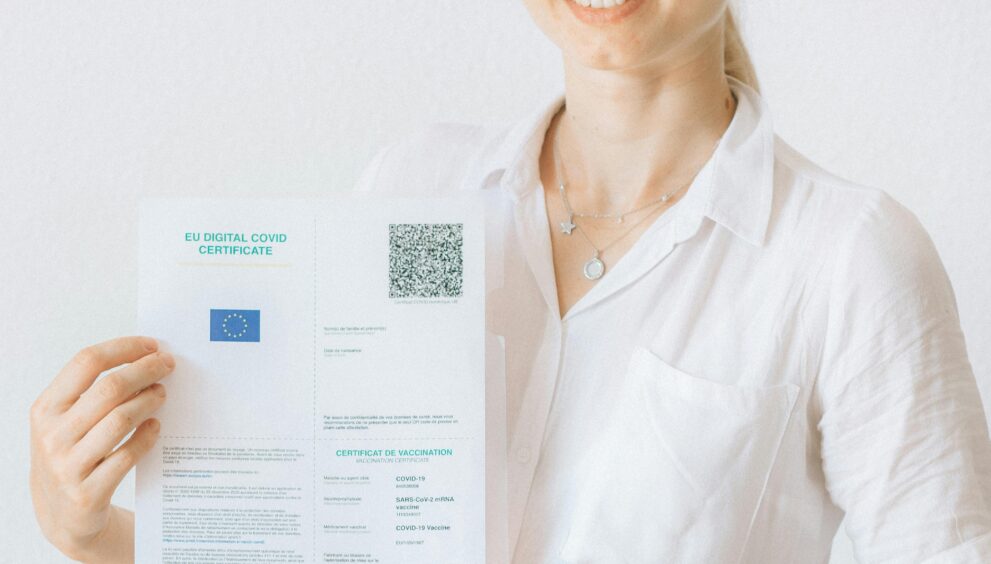Mastering Guest Satisfaction A Revenue Growth Guide for Hoteliers

Guest satisfaction is the cornerstone of success in the hospitality industry. In an increasingly competitive market, ensuring that guests feel valued, heard, and pampered is no longer optional—it’s essential. A satisfied guest is not just a customer; they are a long-term asset who contributes to your hotel’s reputation, attracts future bookings, and ultimately drives revenue.
In this comprehensive guide, we’ll explore how mastering guest satisfaction can act as a powerful catalyst for revenue growth. By incorporating actionable strategies and emphasizing guest happiness, hoteliers can enhance their operations and identify effective ways for how to increase hotel revenue while exceeding customer expectations.
Why Guest Satisfaction is Critical for Revenue Growth
Guest satisfaction is more than a feel-good metric. Research consistently shows its direct link to revenue growth. According to a report by Deloitte, hotels with higher guest satisfaction scores experience repeat bookings and higher spending per guest. Furthermore, positive online reviews boost a hotel’s visibility, encouraging new customers to book.
When guests are happy, they’re more likely to upgrade their rooms, enjoy additional services like dining or spa treatments, and recommend your hotel to others. In contrast, unsatisfied guests may never return and might even deter potential visitors through negative reviews.
Mastering guest satisfaction, therefore, not only enhances the guest experience but also lays a solid foundation for sustainable revenue growth.
1. Understand Your Guests’ Needs and Expectations
To improve guest satisfaction, you must first understand who your guests are and what they value most. Conduct regular surveys, analyze feedback, and leverage booking data to create detailed guest profiles.
For example:
- Business Travelers: They might prioritize high-speed Wi-Fi, early check-ins, or access to meeting rooms.
- Leisure Travelers: They often seek comfortable accommodations, family-friendly amenities, and proximity to local attractions.
- Wellness Enthusiasts: This group may appreciate on-site spas, fitness centers, or healthy dining options.
By tailoring your offerings to meet these preferences, you can exceed expectations and create a memorable experience. This personalization also opens up opportunities to upsell services, presenting clear strategies for how to increase hotel revenue while delighting guests.
2. Deliver Outstanding Customer Service
Exceptional customer service is the bedrock of guest satisfaction. From the moment guests book their stay to their departure, every interaction shapes their overall experience.
Key practices for superior service include:
- Prompt Responses: Quickly address inquiries, whether through email, phone, or social media.
- Warm Hospitality: Train staff to greet guests with a smile and address them by name.
- Proactive Problem-Solving: Empower your team to resolve issues swiftly, turning potential complaints into positive experiences.
For instance, if a guest mentions celebrating a special occasion, offering a complimentary upgrade or a small gift can leave a lasting impression. Such gestures not only increase guest satisfaction but also encourage repeat visits and recommendations.
3. Enhance the Check-In and Check-Out Experience
The first and last impressions guests have of your hotel often occur during check-in and check-out. Simplifying these processes can significantly impact their overall experience.
Ways to improve these interactions include:
- Mobile Check-In and Check-Out: Allow guests to manage these processes through an app, saving time and reducing queues.
- Express Services: Offer express options for those in a rush.
- Personalized Greetings: Train staff to acknowledge returning guests and cater to their preferences.
A smooth, hassle-free experience at these critical touchpoints can set your hotel apart and encourage positive reviews.
4. Personalize Every Guest Interaction
In today’s competitive hospitality landscape, personalization has become a key driver of guest satisfaction. Modern travelers expect tailored experiences that reflect their preferences and make them feel valued.
Examples of personalization include:
- Offering a favorite beverage or snack upon arrival for frequent guests.
- Recommending activities or attractions based on the guest’s booking history.
- Customizing room setups, such as providing hypoallergenic bedding or accommodating special dietary needs.
By investing in personalization, you show guests that their preferences matter, encouraging loyalty and creating opportunities for upselling services.
5. Invest in Superior Amenities
The quality of amenities you provide can greatly influence guest satisfaction. While basic amenities such as comfortable beds and clean rooms are expected, going the extra mile can make all the difference.
Consider offering:
- Luxurious toiletries and bathrobes.
- Complimentary high-speed Wi-Fi.
- On-site fitness centers or wellness spas.
- Unique dining experiences, such as themed dinners or chef’s tastings.
Providing high-quality amenities not only enhances the guest experience but also creates opportunities for additional revenue streams. For example, a well-maintained spa or fine dining restaurant can encourage guests to spend more during their stay.
6. Leverage Technology to Enhance the Guest Experience
Technology has transformed the hospitality industry, enabling hotels to provide seamless and convenient experiences. From booking to check-out, digital tools can elevate guest satisfaction.
Innovative technology solutions include:
- Mobile Apps: Allow guests to book services, order room service, or request assistance at their fingertips.
- Smart Room Features: Enable guests to control room lighting, temperature, and entertainment with ease.
- AI-Powered Chatbots: Provide 24/7 customer support for inquiries or troubleshooting.
Incorporating these advancements demonstrates your commitment to enhancing the guest experience, which can translate into increased bookings and higher revenue.
Also Read: Unveiling the Secrets: A Comprehensive Guide to Resort Weight Loss Program Pricing
7. Gather and Act on Guest Feedback
Feedback is one of the most valuable resources for improving guest satisfaction. Encourage guests to share their thoughts through surveys, reviews, or direct conversations.
Once feedback is collected, take actionable steps to address common concerns or implement suggestions. For example:
- If guests frequently request healthier menu options, update your offerings to include nutritious choices.
- If multiple reviews mention slow Wi-Fi, consider upgrading your internet infrastructure.
When guests see that their feedback is valued and acted upon, they’re more likely to return and recommend your hotel to others.
8. Build Strong Guest Relationships
Developing meaningful relationships with your guests fosters trust and loyalty. Simple gestures, such as remembering a repeat guest’s name or welcoming them back with a personalized note, can make a significant impact.
Encourage staff to engage with guests by:
- Asking about their travel plans and offering helpful recommendations.
- Checking in during their stay to ensure their needs are being met.
- Following up after their visit with a thank-you email or special offer.
Building these connections enhances guest satisfaction and increases the likelihood of repeat bookings, creating sustainable revenue growth.
9. Emphasize Cleanliness and Safety
Cleanliness and safety have become top priorities for travelers in recent years. Hotels that prioritize hygiene and security gain guest trust, which is crucial for satisfaction and repeat business.
Implement practices such as:
- Adhering to strict cleaning protocols for rooms and public areas.
- Clearly communicating safety measures to guests.
- Providing hand sanitizers and masks as needed.
By ensuring a clean and secure environment, you create a positive experience that encourages loyalty and recommendations.
10. Promote Loyalty Programs
Loyalty programs are a powerful tool for retaining satisfied guests and encouraging repeat visits. By offering rewards for continued bookings, you incentivize guests to return while increasing their lifetime value.
Successful loyalty programs often include:
- Points systems that can be redeemed for free stays, upgrades, or dining discounts.
- Exclusive perks for members, such as early check-ins, late check-outs, or complimentary services.
- Tiered rewards that motivate guests to spend more to unlock higher benefits.
A well-structured loyalty program strengthens the bond between your hotel and its guests, creating a win-win situation where satisfaction and revenue both grow.
Conclusion: Turning Guest Happiness into Revenue Growth
Mastering guest satisfaction is not just about creating memorable experiences—it’s about building long-term relationships that drive sustainable revenue. By understanding guest needs, personalizing their interactions, and investing in high-quality amenities and services, you can create a hotel experience that guests will rave about.
Additionally, focusing on technology, cleanliness, and loyalty programs ensures that you stay ahead in an evolving market. When you prioritize guest happiness, the rewards are twofold: satisfied guests and a thriving business.
By implementing these strategies and identifying innovative ways to increase hotel revenue, you can transform your property into a preferred destination that stands out in the competitive hospitality landscape.


 English
English 


















































































































































































































































































































 Office Clearance for SMEs: Affordable Solutions Businesses
Office Clearance for SMEs: Affordable Solutions Businesses









































































































































































































































































































































































































































































































































































































































































































































































































































































































































































































































































































































































































































































































































































































































































































































































































































































































































































































































































































































































































































































































































































































































































































